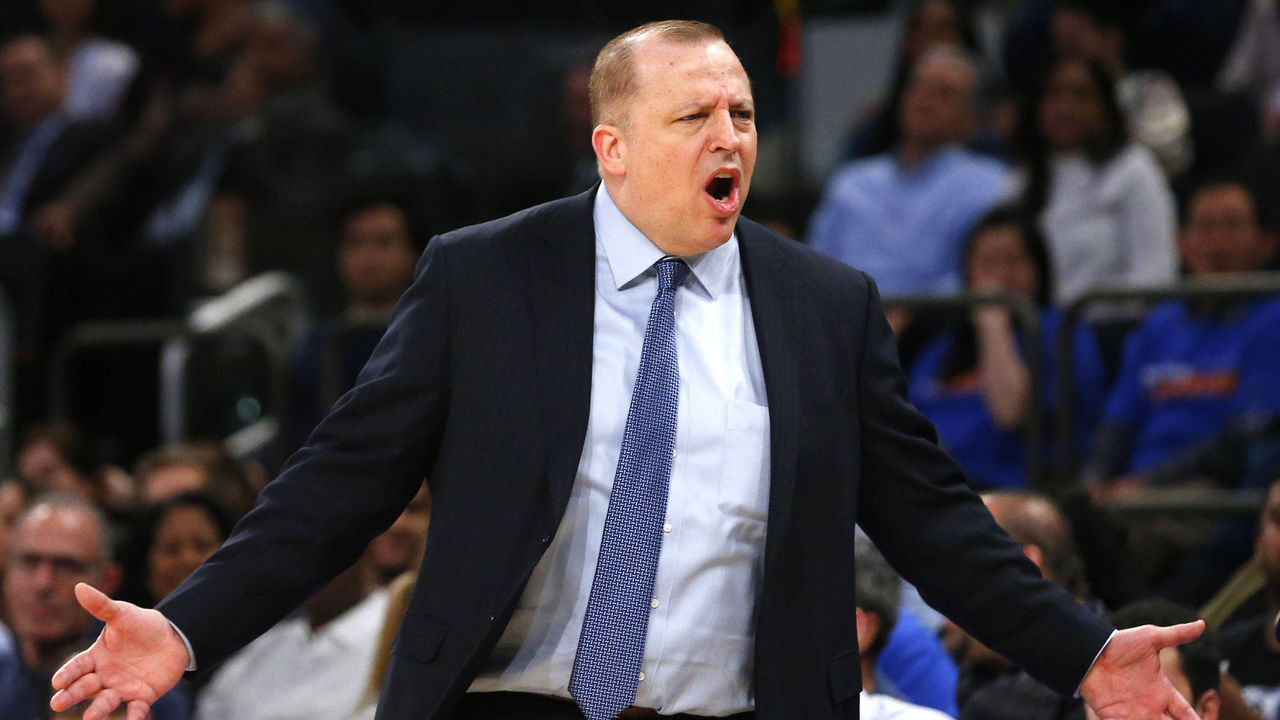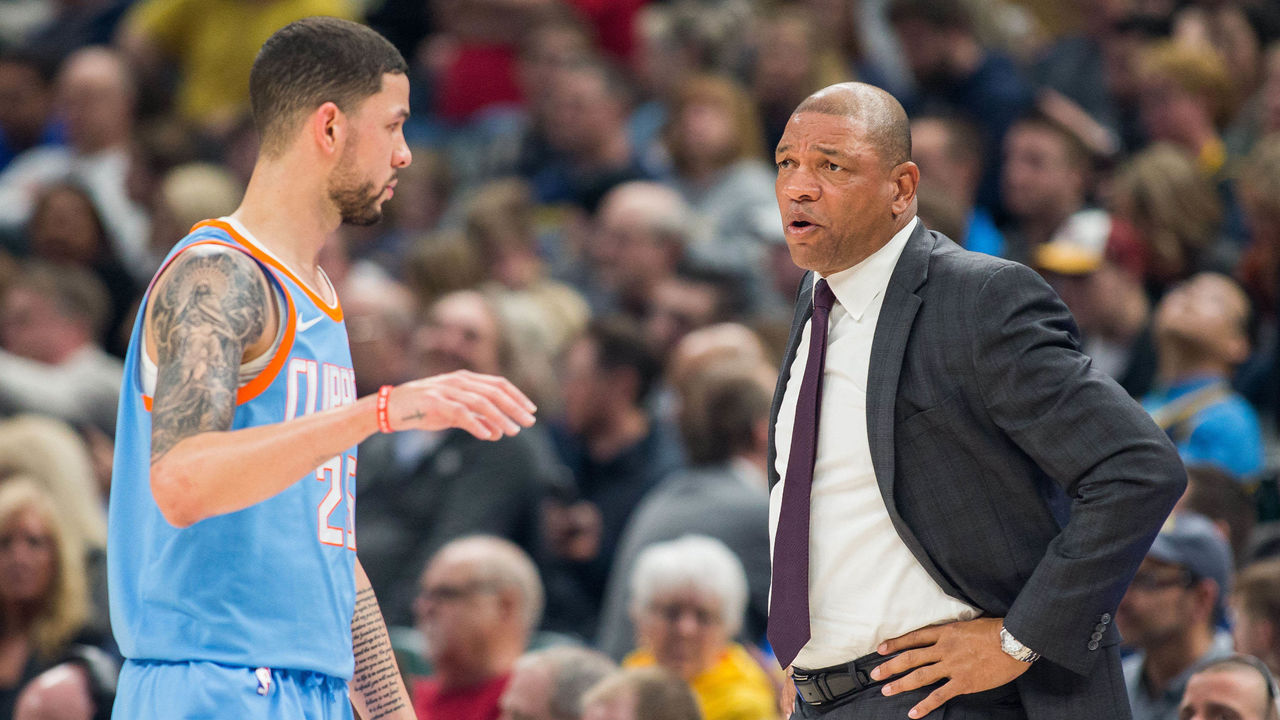Could Van Gundy's firing spell the end of the coach-executive experiment?
After parting ways with Stan Van Gundy, the Detroit Pistons are reportedly preparing to move forward with both a new head coach and a new president of basketball operations, splitting up the roles they'd combined into one job for Van Gundy.
For Van Gundy, having personnel control was a condition of accepting the job with Detroit in 2014 (his insistence cost him the Golden State Warriors' head coaching gig), and it was part of a growing NBA trend. There'd been instances of it in the past (Gregg Popovich comes to mind), but the proliferation of the dual role was a new phenomenon, which began in earnest when the Los Angeles Clippers restructured and extended Doc Rivers' contract - with the inclusion of executive authority - that spring. The Atlanta Hawks later followed suit by adding "president of basketball" to coach Mike Budenholzer's title after Danny Ferry was exiled, and the Minnesota Timberwolves gave Tom Thibodeau the two-pronged job in the summer of 2016.
At the time, it seemed like the new normal. (Sensing this, an envious Jason Kidd orchestrated a failed coup in an attempt to seize executive power with the Nets, and got himself pushed out of Brooklyn.) But Van Gundy's ouster Monday is the third instance of the dual coach-president role being busted up in the past year, leaving the Wolves as the last holdout. And it's fair to wonder how much longer they'll leave Thibodeau in charge of both the locker room and the decisions on how to populate it, or whether we'll see another team give anyone that same expanded purview anytime soon.

In theory, there are logical reasons to combine the roles. A coach can conceive of how certain players might fit in a system, and would have a sense of what works and what doesn't in practice. It's not like every recent instance has been an abject disaster from start to finish, either. All of these guys have overseen some shrewd personnel moves, like Van Gundy pulling off an absolute heist of a trade for Tobias Harris, Thibodeau acquiring Jimmy Butler and signing Taj Gibson, Budenholzer flipping the last year of Jeff Teague for the draft pick that became Taurean Prince, and Rivers convincing DeAndre Jordan to re-sign after the center had initially decided to go to Dallas, and extracting a solid return in the Chris Paul trade. On the whole, though, the bad has far outweighed the good, and the tenures of these coach-execs have only served to highlight the value of keeping church and state separate.
Budenholzer let Al Horford and Paul Millsap walk for nothing, gave lucrative extensions to Kent Bazemore and Dennis Schroder, and signed Dwight Howard to a misbegotten free-agent deal, taking the team from a 60-win juggernaut to a pitiable long-term rebuilding project. Rivers tossed away draft picks like coins in a fountain, failed to draft a single rotation player with the picks he did keep, never found an adequate solution on the wing, and ultimately helped squander the primes of an elite four-man core. Thibodeau gave Teague a head-scratching contract when the market was rife with point guards who fit his roster better, handed Andrew Wiggins a monster extension that already looks terrifying, and failed to fill out the end of his bench (a decision that only exacerbated his impulse to run his regulars into the ground). Van Gundy drafted miserably (picking Luke Kennard ahead of Donovan Mitchell might not even be his most egregious whiff), clogged the Pistons' cap sheet with Andre Drummond's max extension and big-money deals for Reggie Jackson, Jon Leuer, and Langston Galloway, and ultimately parlayed his best move (the Harris trade) into one of his worst (the Blake Griffin deal this season).

This is all a bit simplistic, to be sure. Front-office decisions are collaborative, none of them are made in a vacuum, and no single executive deserves all the credit or blame for any one move. But the fact that at least three of these coaches have failed pretty spectacularly in their roster-management roles (with the jury still out on Thibodeau) suggests it's not a sustainable model. Coaches can have a say in personnel decisions without being relied upon as final-say decision-makers.
It's easy to see why it would be difficult to balance the responsibilities of managing personalities, filling up a playbook, running practice and film sessions, and coaching 82-plus games while scouting, communicating with agents and rival executives, learning all the ins and outs of the collective bargaining agreement, and making objective assessments of players. Coaching an NBA team already exacts a ridiculous toll, something this season has made painfully obvious, if it wasn't already. You can understand why those pulling double duty might wind up being spread too thin. You can understand why they might get too attached to players they're familiar with (think Thibodeau reassembling his Bulls teams in Minnesota; think Rivers doling out a first-rounder for Jeff Green, and signing Paul Pierce and Glen Davis and Brandon Bass, and trading for and re-signing his own son). It's hard to imagine the commitment to one of those roles not coming at the expense of the other.
Even if Detroit had kept Van Gundy on as coach for next season, the prevailing sentiment was that the team would strip him of his front-office duties. Meanwhile, Thibodeau is still hanging on for now, but with all the mounting evidence that the setup is a recipe for failure, the Pistons' decision to cut bait on it might spell the end of the coach-executive experiment.
HEADLINES
- Giannis denies speaking with Bucks about future: 'I'm still locked in'
- Pelicans erase 25-point deficit to stun Rockets in OT
- Ball, Knueppel help Hornets survive 43-point effort from Hawks' Johnson
- Winning mindset: Knueppel drawing ROY buzz with 2-way play
- SGA scores 32 as Thunder bounce back vs. Clippers